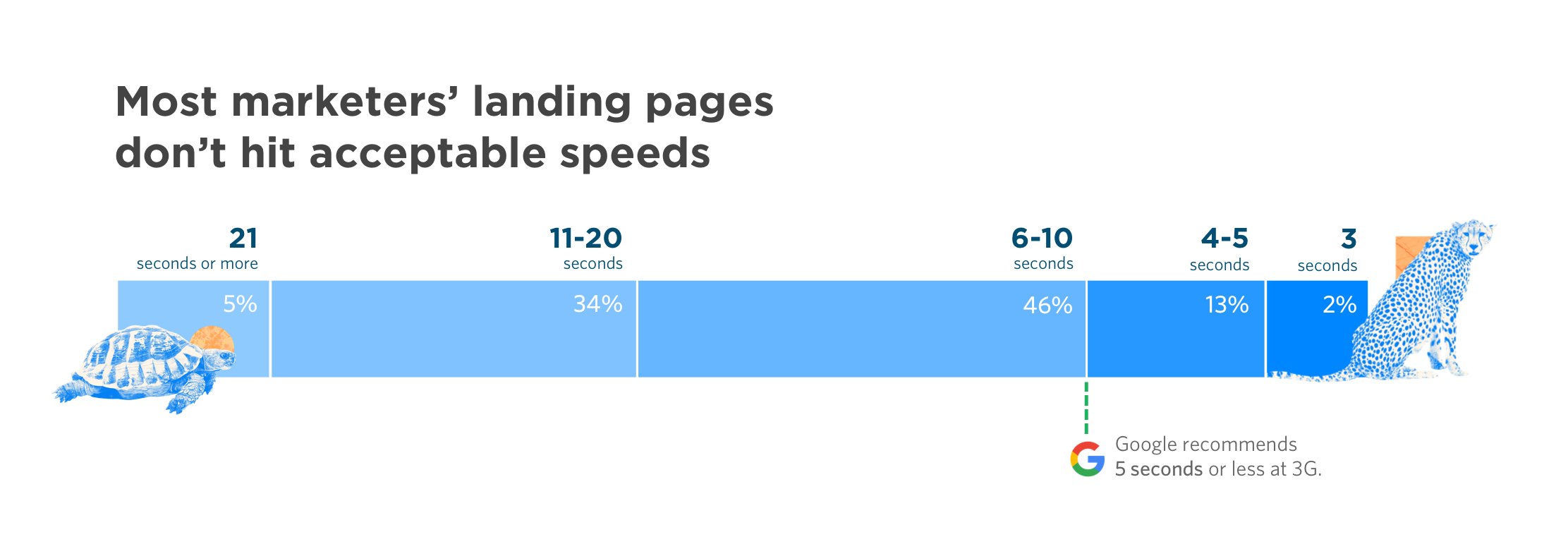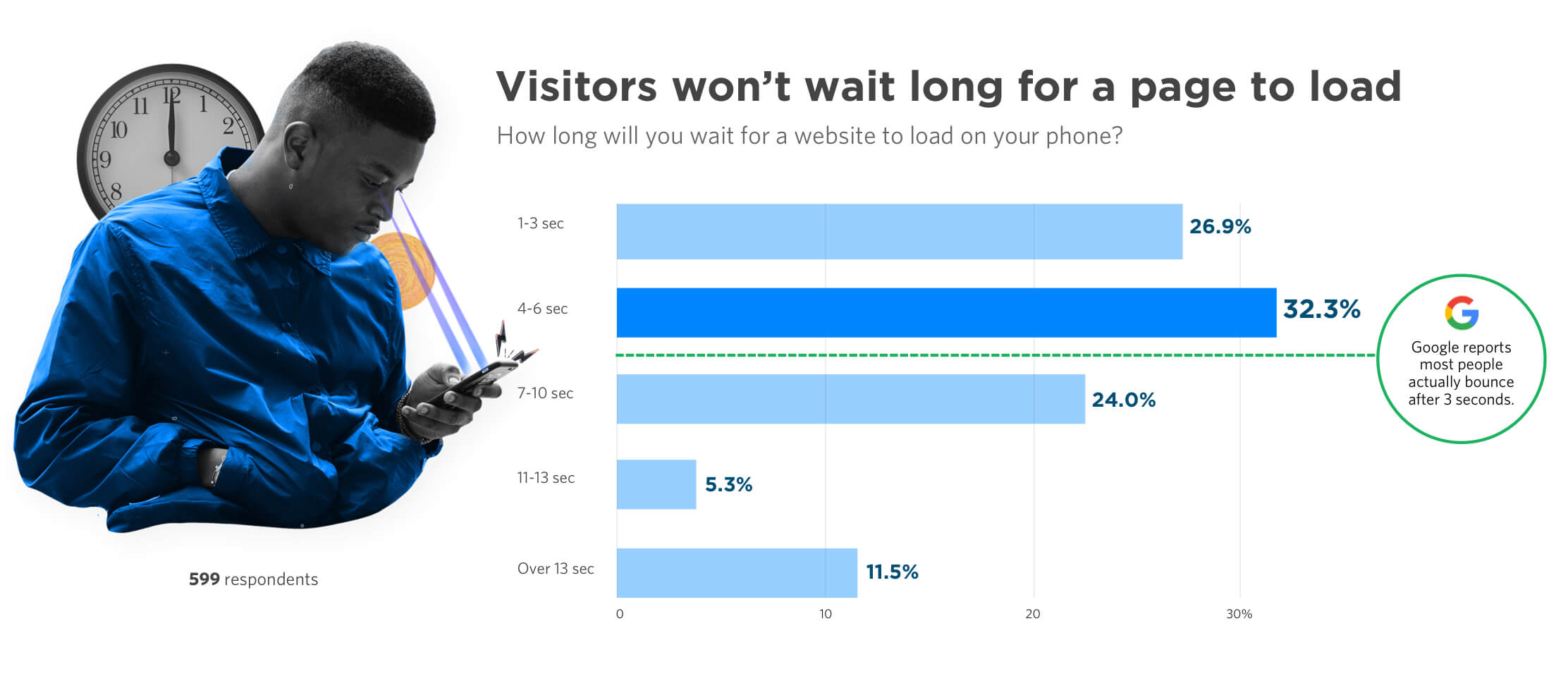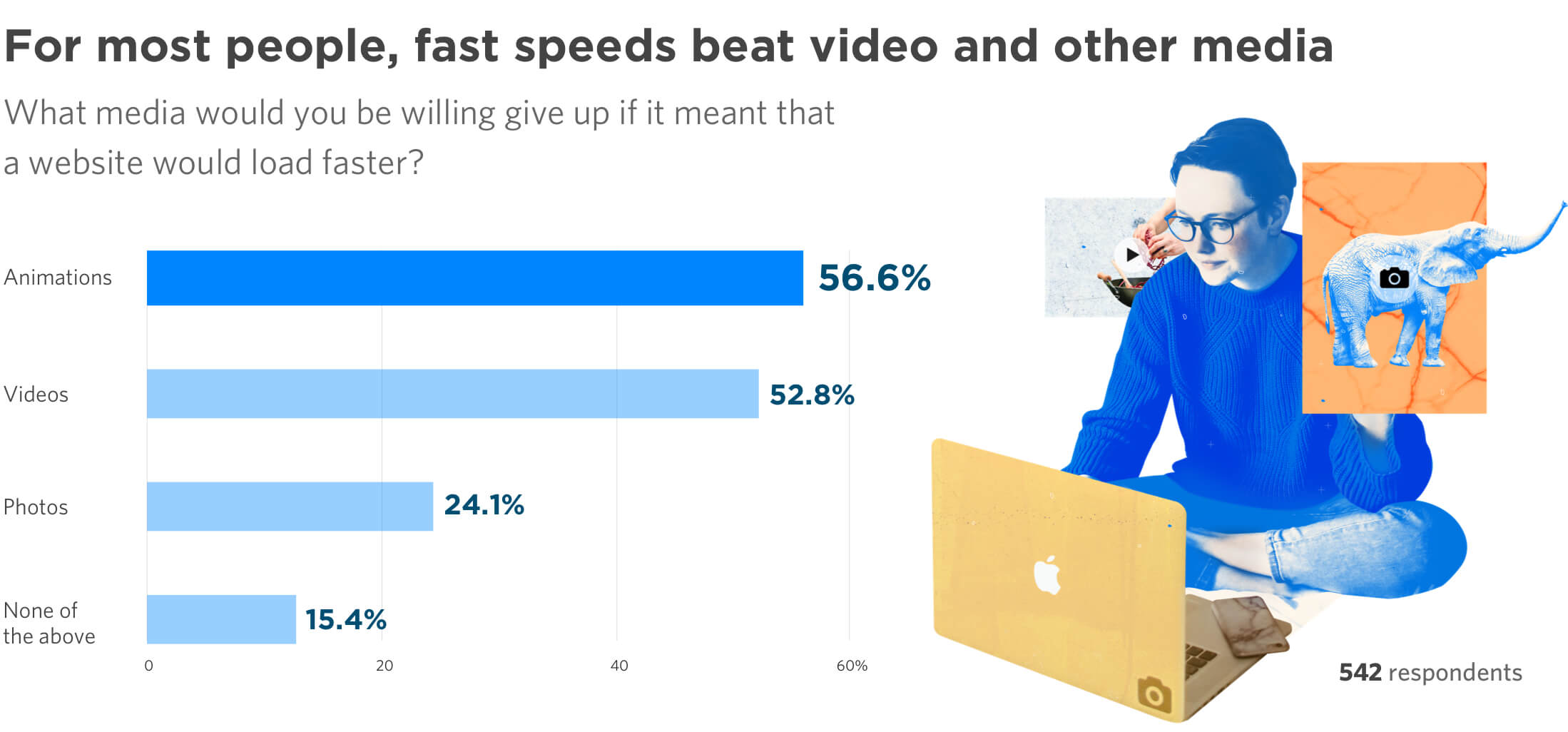A recent study has revealed the importance of ensuring your page loads speedily and effectively.
In fact, the study reveals it's best to ensure it loads speedily so much so that web visitors are willing to lose animation and video for a fast-loading website:
"Half of all people say they’d be willing to give up animation and video for faster load times."
Undertaken by Unbounce, the study has revealed a variety of crucial considerations for web developers, designers and their clients to consider when undergoing any web project.
The study took place during October-November 2018, involving 750 consumers and 395 marketers. Ultimately, it reflected that everybody appreciates the importance of a fast-loading website, yet nobody is doing enough to avoid such consequences:
- When it comes to waiting for pages to load, most consumers think they’re more patient than they actually are.
- Nearly 70% of consumers admit that page speed impacts their willingness to buy from an online retailer.
- Although they know it’s important, the majority of marketers aren’t making page speed a priority.
Here's a round-up of the biggest findings from Unbounce's study...
Google recommends sites load in 5 seconds or less...
At Unbounce's CTAConf in 2018, they surveyed 188 attendees and ran their websites through Google's Test My Site tool to see how fast the average website loaded. With just a small sample size the results were very revealing:

At 3G speeds Google recommends a website should load within 5 seconds, but 85% of participants' sites were slower than this recommendation!
Consumers don't like slow pages and they're less patient than they think they are
3/4 of shoppers surveyed by Unbounce said they will wait 4 or more seconds before abandoning a slow-loading page, but Google reveals that actual user behaviour shows most people bounce after waiting 3 seconds.

Further insights show that Android users are more patient than iOS users (in the US iOS users are 65% of the mobile marketplace).
"Of those who will wait 1-3 seconds for a page to load, 64% were iOS users while only 36% were Android users. Of those who said they’d wait 11-13 seconds, only 36% were iOS users versus 61% Android users."
Source: Unbounce
Half of all surveyed would be willing to give up animation and video for faster load times
As much as it pains the designers in us, it is indeed a luxury that the typical visitor would be willing to give up. Approximately 25% of users would give up photos, but around 52-56% are willing to give up animation or video for a faster loading page. Only 15% stated they wouldn't be willing to give up anything for a faster website.

Almost half of consumers say they’ll try to refresh a page at least once when it takes 3 seconds to load. But 22% say they’ll close the tab, and 14% say they’ll visit a competitor’s site. If you count on 1000 daily visitors, that’s 360 potential customers gone.
Source: Unbounce
Find more like this via Development.